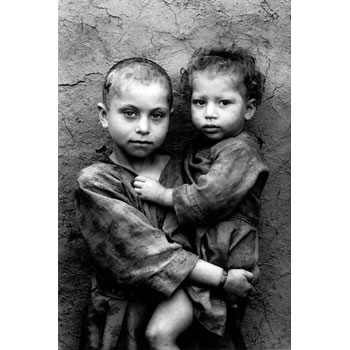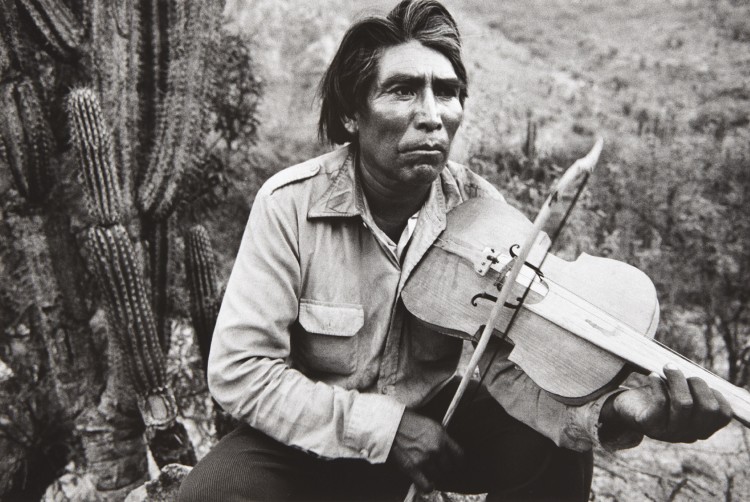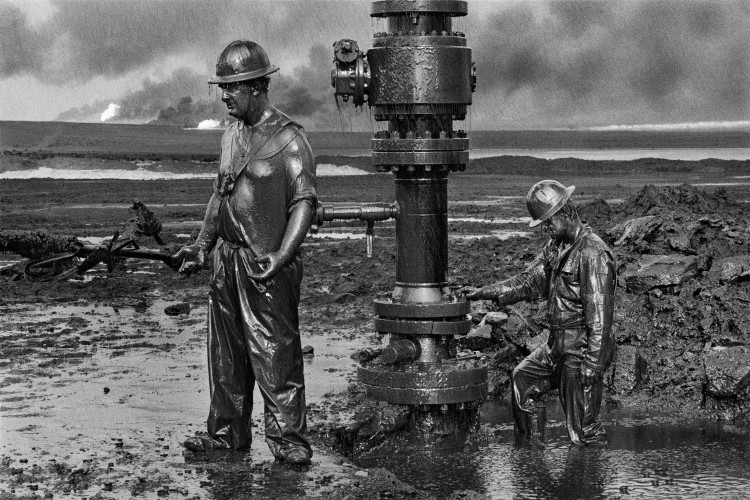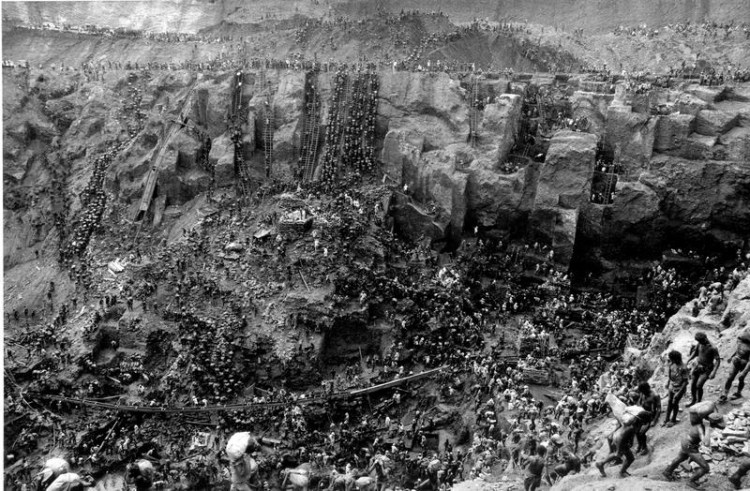These days, who finds anyone admirable in the course of one experience? The media universe is drowning in celebrity selfies and other nonsense; giraffe killers; anti-climate-change gun crazies; absurd politicians; ranters and cynics of every stripe. Every kind of ephemera, in one way or another, seems to be trying to position itself as enduring. Watch The Salt of the Earth and you come across a person who has lived his life traveling to wretched and beautiful places so as to record what he has found with a camera. In person, he is soft-spoken, calm, thoughtful, restrained. His photographs are earthquakes.
I do not take photographs. I snap pictures. Salgado takes photographs. He has spent his entire life seizing moments out of time with what seems to be an infallible eye. His portraits of human beings often mark their direct gaze as the visual confirmation of an inner life, and thus of the ineradicable value of each life. His shots of people at work or on the move register a mess of conflicting motivations: our locust desires, our dignity displayed through deep-set purpose, our abiding energy and curiosity. His photographs of war are elements of witness — ‘This photo has recorded this terrible scene. Look at what our species can do.’ He concludes that “we are terrible animals. We are ferocious animals.”
However, he never becomes cynical, never a nihilist. To overcome despair, he finds a place and a purpose. He and his wife go back to his native Brazil and take hundreds of acres of ruined ground, desolated rain forest, empty of life, and they bring it back. Patiently, over years, they plant and tend this ground and restore it to life. Even jaguars have returned.
He refused to let barbarism destroy his faith in goodness. He demonstrated that individual actions can always add some grace to the world. He did not give up. For those reasons and more, I admire him.



